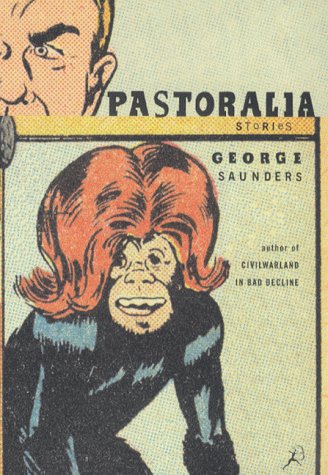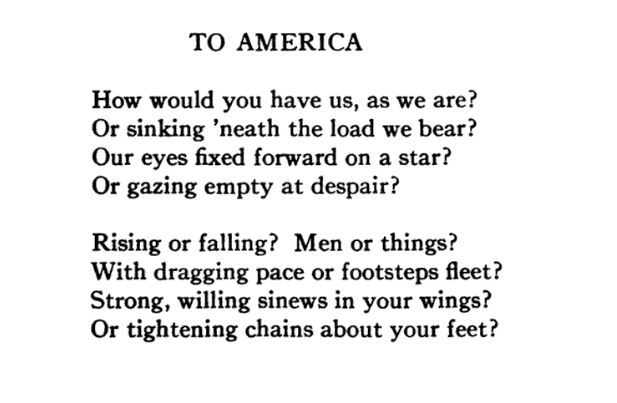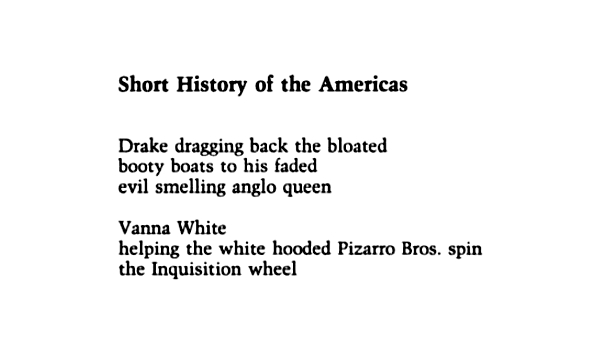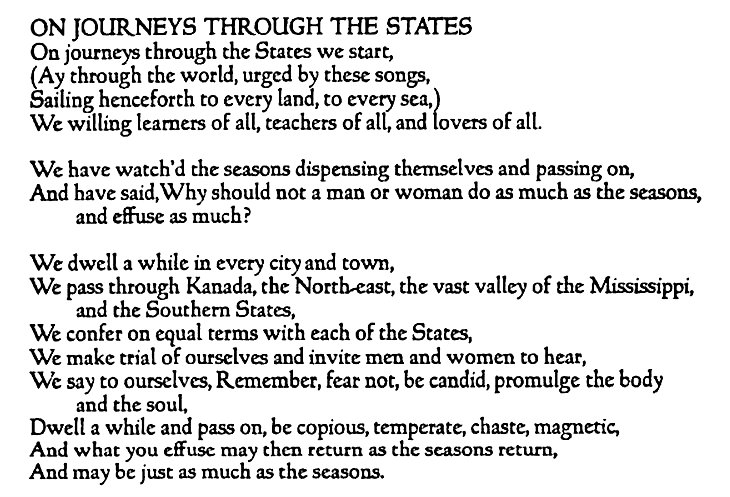 I read Pastoralia, George Saunders’s 2000 collection of stories very quickly, consuming one or two of the book’s six stories a night, usually wedged between other readings. There was a flavor of respite to these readings, a sense of ease or relaxation or—dare I say it—simple pleasure. Frankly, I’m suspicious of any book that I’m able to read very quickly; perhaps I’m prejudiced against any book that doesn’t pose (or impose) its own learning curve on the reader.
I read Pastoralia, George Saunders’s 2000 collection of stories very quickly, consuming one or two of the book’s six stories a night, usually wedged between other readings. There was a flavor of respite to these readings, a sense of ease or relaxation or—dare I say it—simple pleasure. Frankly, I’m suspicious of any book that I’m able to read very quickly; perhaps I’m prejudiced against any book that doesn’t pose (or impose) its own learning curve on the reader.
I’m perhaps off to a very bad start in this review, veering on the appearance of condescension (when, to be clear, I think that Pastoralia is sharp and wise and wicked and well-written and very, very funny)—but I feel like I have to get this out of the way up front: George Saunders’s prose, plots, and dialogue all reminded me very much of the prose, plots, and dialogue of David Foster Wallace.
A bit of objective data: DFW and Saunders are/were of a similar age (born in ’62 and ’58, respectively) and Infinite Jest and Saunders’s first collection, CivilWarLand in Bad Decline were published the same year (’96). But, because of the simple mechanical truth that I read Wallace much, much earlier than Saunders, I find his influence unduly there. No doubt that when I detect Wallacian curves and contours and rhythms in Saunders—the coupling of officialese with imaginary slang, the depiction of a postmodern America which is slightly (but only slightly) not our own, the analyses of power and fear and duty—when I find these points of comparison, what I am really finding is the shared influences of Wallace and Saunders (no doubt postmodernists like Pynchon, Barth, Barthelme, et al). In short, if I find a suspicious ease or comfort in Saunders, it’s because Wallace already taught me to read him. But like I said before, this is not a great start. I should just review the book.
Short review: the six tales in Pastoralia are hilarious, tender, and depressingly predictive of the decade that came after their composition (not to mention the strange dark horizon ahead of us). The long opener “Pastoralia” features a hapless man who works long hours apart from his wife and children in a failing history park. His job is to simulate a caveman, but his partner, an older woman with a troubled son, makes the job difficult to perform with any level of, uh, historical accuracy. When employees must be downsized, one of the managers tries to convince the narrator to rat out his partner’s shortcomings. “Pastoralia” is a study in how corporate power uses dehumanizing tactics to exploit workers. The communications the narrator receives from a nebulous plurality of managers are both hilarious and horrific, each one a contortion of logic that serves to strip the rights (and self-worth) of the workers. The story, depressingly, is more relevant than ever. (Readers familiar with CivilWarLand in Bad Decline will recognize “Pastoralia” as a revision of sorts to that earlier collection’s title story).
The next tale, “Winky,” moves along the same lines, exploring the clash between the Darwinian drives of self-protection and self-satisfaction set against the needs of others. In this story, the protagonist attends a self-help seminar (the scene is something so contemporaneous with Wallace that I’s tempted to write “straight out of DFW”), where the psychobabble and rationalizing of the speaker persuades him to ditch his weird, needy sister. Like the complex and funny managerial rhetoric we find in “Pastoralia,” the motivational lingo lulls and persuades not just the protagonist, but also the reader, into the easy trap of contemporary consumerism that centers the self as the ultimate telos of existence.
“Sea Oak” is the possible high point in the collection. It depicts an ersatz family living in a housing project that at one point we might have described as “on the margins of America” — only in Saunder’s vision (a vision increasingly realized) such housing projects are the reality for the majority of Americans. The middle class is not the norm. The (male) narrator strips to help bring money into the crappy apartment he shares with his aunt and two cousins and their two kids. A sample—
Sea Oak’s not safe. There’s an ad hoc crackhouse in the laundry room and last week Min found some brass knuckles in the kiddie pool. If I had my way I’d move everybody up to Canada. It’s nice there. Very polite. We went for a weekend last fall and got a flat tire and these two farmers with bright red faces insisted on fixing it, then springing for dinner, then starting a college fund for the babies. They sent us stock certificates a week later, along with a photo of all of us eating cobbler at a diner.
The hyperbolic vision of a Canada that cares for all of its citizens stands in sharp relief to the predatory Darwinism of the Sea Oak projects. As the story unfolds, Saunders uses his characters to examine just what exactly economic struggle in American is for—what does the American Dream mean when subsistence living alone is so difficult?
“The End of FIRPO in the World” is perfection, a sad, funny, rambling stream of consciousness that plumbs the mind of an alienated boy who imagines his future glories and the revenge that he will have for all the slights done him. “FIRPO,” sitauted in the middle of collection, moves the book from the familial and corporate to the individual, as the last few tales (“The Barber’s Unhappiness” and “The Falls”) inhabit the strange sad consciousness of ordinary, awful people. These are beautiful portraits, ones that explore the gravity of failure and the small glowing sparks of redemption that might be available to us.
If, as I remarked earlier, there’s a comfort in Saunders’s prose, it’s the strange uncomfortable comfort that there’s a perceptive and wise intelligence out there that can apprehend and satirize the sheer horrific injustice that pervades the modern condition. Pastoralia is great, and I picked up CivilWarLand in Bad Decline right after finishing it, so there’s an endorsement. Recommended.





 I read Pastoralia, George Saunders’s 2000 collection of stories very quickly, consuming one or two of the book’s six stories a night, usually wedged between other readings. There was a flavor of respite to these readings, a sense of ease or relaxation or—dare I say it—simple pleasure. Frankly, I’m suspicious of any book that I’m able to read very quickly; perhaps I’m prejudiced against any book that doesn’t pose (or impose) its own learning curve on the reader.
I read Pastoralia, George Saunders’s 2000 collection of stories very quickly, consuming one or two of the book’s six stories a night, usually wedged between other readings. There was a flavor of respite to these readings, a sense of ease or relaxation or—dare I say it—simple pleasure. Frankly, I’m suspicious of any book that I’m able to read very quickly; perhaps I’m prejudiced against any book that doesn’t pose (or impose) its own learning curve on the reader.
